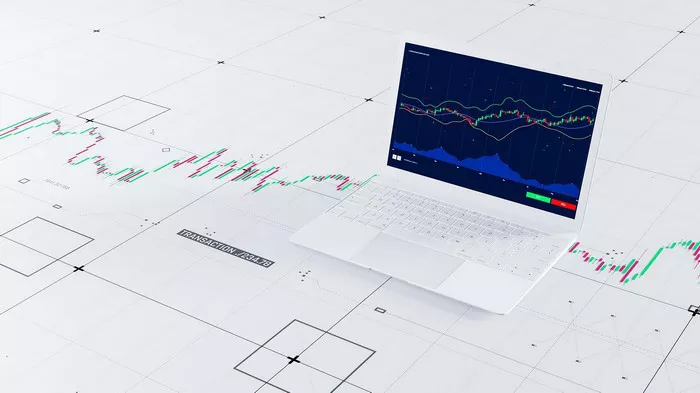The adoption of the U.S. dollar by El Salvador in 2001 was a significant economic shift for the Central American country. The decision to dollarize the economy was not a small one, and it has had lasting effects on the nation’s financial landscape. This article explores the reasons why El Salvador uses the U.S. dollar, its impact on the country’s economy, and the advantages and disadvantages that have come with this decision.
The Historical Context of Dollarization
To understand why El Salvador uses the U.S. dollar, it’s essential to consider the country’s economic history and its relationship with the U.S. Before the dollarization process, El Salvador’s currency was the Salvadoran colón, which had been in use for over a century. The colón, however, was plagued by instability due to inflation, poor economic policies, and a lack of confidence in the country’s monetary system. The need for economic reforms became urgent as the nation struggled with high inflation rates, volatile exchange rates, and a lack of investor confidence.
In the late 1990s, the Salvadoran government began to explore alternatives to the colón, particularly looking at the U.S. dollar as a potential solution. By 2001, under the presidency of Francisco Flores, the decision to adopt the U.S. dollar was officially made. The U.S. dollar became legal tender alongside the Salvadoran colón, effectively phasing out the latter.
Why Did El Salvador Dollarize?
1. Stabilizing the Economy
The primary motivation for dollarization was to stabilize the Salvadoran economy. At the time, inflation was a significant issue, and the government sought a way to curb it. The adoption of the U.S. dollar, which is considered a stable and internationally recognized currency, was seen as a way to reduce inflation and stabilize the economy. By using a currency with lower inflation, El Salvador hoped to create a more predictable and stable economic environment.
2. Reducing Exchange Rate Risks
Before dollarization, the Salvadoran colón had been subject to frequent fluctuations in its exchange rate against the U.S. dollar. These fluctuations were often the result of speculation in the currency market, leading to uncertainty and risk for businesses and individuals. By adopting the U.S. dollar, El Salvador eliminated exchange rate risk, as the currency was now tied to the value of the dollar. This allowed for more predictable international trade and investment.
3. Attracting Foreign Investment
One of the key reasons for dollarizing the economy was to make the country more attractive to foreign investors. El Salvador, like many developing countries, faced challenges in attracting foreign investment due to concerns over currency instability and inflation. By adopting the U.S. dollar, the government sought to demonstrate a commitment to economic stability and to reduce the risks associated with currency devaluation. This move was intended to foster greater confidence in the Salvadoran economy, especially among foreign investors and multinational companies.
4. Access to Global Markets
Adopting the U.S. dollar also provided El Salvador with greater access to global markets. As the dollar is the world’s primary reserve currency and widely used in international trade, it facilitated easier transactions for Salvadoran businesses. Dollarization made it simpler for the country to engage in trade agreements and increase exports to countries that used the U.S. dollar or had strong trade ties with the United States.
5. Lower Interest Rates
Dollarization was also expected to help reduce interest rates in El Salvador. With the country now using a stable and widely recognized currency, the cost of borrowing money was anticipated to decrease. The idea was that banks in El Salvador would be able to offer lower interest rates on loans, thus stimulating economic growth. This was especially important for small and medium-sized enterprises (SMEs), which often struggled with high borrowing costs.
The Impact of Dollarization
1. Economic Stability
Since adopting the U.S. dollar, El Salvador has seen greater economic stability compared to the years before dollarization. Inflation has been significantly reduced, and the country has experienced lower volatility in exchange rates. This stability has been a major benefit for businesses and consumers, who now have a more predictable economic environment in which to operate.
2. Increased Foreign Investment
Dollarization has helped attract foreign investment to El Salvador. By eliminating currency risk and offering a stable monetary system, the country has become more attractive to investors. Foreign companies are more likely to establish operations in a country with a stable currency, which can lead to job creation and economic growth. While there was an initial decline in investment following the dollarization, over time, the stability provided by the U.S. dollar has helped to boost investor confidence.
3. Integration into the Global Economy
The use of the U.S. dollar has made it easier for El Salvador to integrate into the global economy. As the dollar is the primary global reserve currency, businesses in El Salvador now have easier access to international markets. This has facilitated trade, especially with the U.S., which is one of El Salvador’s largest trading partners. The country’s exports, such as coffee, textiles, and apparel, have benefited from the stability and credibility that comes with using the dollar.
4. Loss of Monetary Policy Control
One of the drawbacks of dollarization is that El Salvador has lost control over its own monetary policy. Under the colón, the country’s central bank had the ability to adjust interest rates and engage in currency interventions to stabilize the economy. With the U.S. dollar as the official currency, El Salvador no longer has control over its money supply or exchange rate. This means that the country cannot respond directly to economic shocks or crises with its own monetary tools.
For example, during periods of economic downturn, El Salvador cannot devalue its currency to make exports cheaper or adjust interest rates to stimulate investment. Instead, it must rely on external factors, such as U.S. Federal Reserve policies, which may not always align with the country’s economic needs.
5. Increased Dependency on the U.S.
By adopting the U.S. dollar, El Salvador has become more economically tied to the U.S. economy. While this has its benefits, it also means that any fluctuations in the U.S. economy, such as changes in interest rates or economic slowdowns, can have a significant impact on El Salvador. The country is now heavily influenced by U.S. economic policies, making it vulnerable to external economic shocks that may not be directly relevant to its own economy.
Challenges Faced by El Salvador After Dollarization
1. Inflation Control Remains Challenging
While dollarization has helped reduce inflation, the country still faces challenges in controlling inflation levels. El Salvador does not have the ability to print its own money to address inflationary pressures, meaning it must rely on external measures. The U.S. Federal Reserve controls the money supply, and changes in U.S. monetary policy, such as interest rate hikes, can affect inflation in El Salvador. As a result, El Salvador’s inflation rates are influenced by external factors over which the government has little control.
2. Limited Economic Flexibility
Dollarization limits the country’s ability to respond to economic crises. In the absence of a central bank capable of implementing policies like currency devaluation or printing money, El Salvador has fewer tools to address economic imbalances or respond to external shocks. This lack of flexibility has been particularly evident during times of economic downturn or natural disasters.
3. Economic Inequality
Despite the overall economic stability brought by dollarization, income inequality remains a significant issue in El Salvador. The adoption of the U.S. dollar has not resulted in significant reductions in poverty levels, and many Salvadorans continue to face economic challenges. Dollarization has not been a panacea for the country’s underlying structural problems, including inequality in income distribution and access to economic opportunities.
The Future of Dollarization in El Salvador
The question of whether El Salvador will continue using the U.S. dollar remains a subject of debate. On the one hand, dollarization has brought stability and increased foreign investment to the country. On the other hand, it has limited the government’s ability to control its own monetary policy and adapt to changing economic conditions.
In recent years, the government of El Salvador has explored other options, such as the introduction of Bitcoin as legal tender in 2021. While Bitcoin adoption has been controversial, it highlights the ongoing search for solutions to economic challenges in the country.
Despite these experiments, the U.S. dollar is likely to remain the dominant currency in El Salvador for the foreseeable future. The benefits of stability, access to global markets, and reduced inflationary pressure continue to outweigh the disadvantages. However, the country’s reliance on the U.S. dollar underscores the importance of having a stable and flexible economic system that can adapt to both domestic and international economic changes.
Conclusion
El Salvador’s decision to use the U.S. dollar was driven by the need to stabilize its economy, attract foreign investment, and integrate into the global market. While dollarization has brought significant benefits, including economic stability and increased foreign investment, it has also come with challenges, particularly in terms of losing control over monetary policy and increased dependency on the U.S. economy. As El Salvador continues to navigate its economic path, the decision to adopt the U.S. dollar remains a defining aspect of its financial landscape. The future will likely see further attempts to balance stability with flexibility in an ever-changing global economy.
Related topics:


































